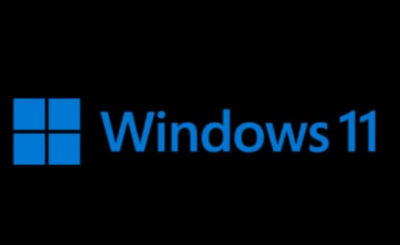
In the dynamic landscape of data science, the collaborative ethos inherent in open-source initiatives emerges as a driving force propelling the field forward. Aspiring data scientists, especially those immersed in a Data Science Course in Bangalore, witness the transformative influence of collaborative endeavours within the open-source community. This environment, anchored by shared knowledge and collective problem-solving, is integral to advancing data science capabilities.
The course structure in Bangalore often mirrors this collaborative spirit, immersing learners in hands-on projects and real-world applications that underscore the importance of open-source contributions. As a result, participants gain theoretical insights and actively contribute to and benefit from the global repository of open-source tools, fostering a culture of continuous learning, innovation, and shared success within the vibrant data science community.
The Open-Source Ecosystem:
At the core of the data science landscape lies the Open-Source Ecosystem, a driving force democratising access to potent resources. This inclusive framework revolves around open-source tools and frameworks, such as Python, R, and TensorFlow, becoming synonymous with innovation and collaboration. These initiatives have evolved into a shared playground, transcending boundaries and bringing together enthusiasts and seasoned experts.
The accessibility of open-source tools is pivotal in breaking down barriers to entry in the data science domain, fostering a collaborative environment where knowledge is freely shared. Python, with its versatility, R, renowned for statistical computing, and TensorFlow, a pioneer in machine learning, exemplify the transformative impact of open-source contributions, creating a dynamic space where collective intelligence propels the field forward, paving the way for continuous innovation and community-driven progress in data science.
Role of Open-Source Initiatives on the Data Science Community
- Empowering Skill Development: Open-source superpowers like Python and R empower aspiring data scientists by providing accessible tools for skill development. These resources, integral to the curriculum, facilitate collaborative learning within the data science community.
- Real-world Application Emphasis: Open-source initiatives emphasise real-world applications, filling the void between theoretical and practical knowledge in data science courses. Learners actively engage with projects, fostering hands-on experiences that reflect the collaborative nature of the community.
- Global Connectivity and Collaboration: Open-source fosters global collaboration, connecting learners worldwide. A Data science course leverages this connectivity, encouraging participants to contribute to diverse projects and benefit from various perspectives.
- Innovation Acceleration: The open-source ecosystem accelerates innovation in data science courses. Learners stay at the forefront of advancements, tapping into evolving tools, frameworks, and libraries that drive collective progress within the data science community.
- Adaptability to Local Challenges: Open-source superpowers enhance the adaptability of data science course to local challenges. Learners can tailor their skills to address specific industry demands, ensuring the curriculum’s relevance to their region’s unique landscape.
- Fostering a Collaborative Mindset: Engaging with open-source tools cultivates a collaborative mindset among data science course participants. Learners embrace collective problem-solving, recognising that their contributions drive individual growth and have a broader impact on the collaborative ethos of the data science community.
However, in the thriving tech hub of Bangalore, the ascendancy of open-source initiatives is reshaping the landscape of the data science community. This phenomenon is not merely a trend; it’s a transformative force catalysing collaboration, innovation, and collective growth.
- Accelerating Skill Development: The rise of open source accelerates skill development within Bangalore’s data science community. Aspiring professionals can actively contribute to open-source projects, gaining practical experience and honing their expertise in real-world applications.
- Enhancing Local Relevance: Open-source initiatives enhance the local relevance of data science practices in Bangalore. By addressing region-specific challenges and industry demands, these initiatives ensure that data scientists are well-equipped to navigate the nuances of the local tech landscape.
- Fostering a Culture of Innovation: The open-source culture fosters a spirit of innovation in Bangalore’s data science community. Constant exposure to evolving tools and libraries stimulates creativity, pushing practitioners to explore new methodologies and contribute to the collective advancement of the field.
- Global Connectivity and Impact: Open source connects Bangalore’s data science community with the global stage. Collaborative projects transcend geographical boundaries, allowing practitioners to contribute to international initiatives while drawing inspiration and insights from a diverse global talent pool.
Conclusion:
In conclusion, the collaborative influence of open-source initiatives in the data science community is a powerful force propelling innovation and knowledge sharing. Embracing tools like Python, R, and TensorFlow, the community experiences a dynamic synergy that transcends borders. This collaborative spirit not only accelerates skill development and fosters a culture of innovation but also positions data scientists at the forefront of global advancements. In the ever-evolving landscape of data science, open source emerges not just as a toolset but as a transformative ethos shaping the future of the field.
ExcelR – Data Science, Data Analytics Course Training in Bangalore
Address: 49, 1st Cross, 27th Main, behind Tata Motors, 1st Stage, BTM Layout, Bengaluru, Karnataka 560068
Phone: 096321 56744






